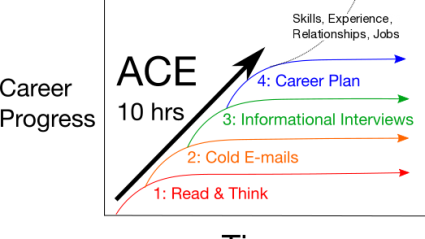For some people “networking” is an intimidating word. They say, “I don’t have any contacts and networking sounds scary.” If you start by thinking about what careers you want to learn about and who you can reach out to who is working in those career areas, the process may feel less intimidating. Calling these interactions informational interviewing can take some of the stress out of learning about career options and developing new contacts.
Many PhD students and postdocs wonder if they really need a LinkedIn profile. Very often they are told by their advisors that using LinkedIn is a waste of their time. Perhaps it might not be the best go to website for academic job searches; however, if you are exploring any non-academic options, then you need to start using LinkedIn.
Some people really enjoy networking; after all, at its essence, it is just talking to others. According to Merriam-Webster, it is simply “the exchange of information or services among individuals, groups, or institutions.” It sounds pretty innocuous, so why then do so many dread and even fear this activity? At OITE, we hear a lot of reasons why individuals avoid networking. Here are the most common:
Post Doc Alumna: Anu Nagarajan, PhD
Industry Position: Senior Scientist
The OITE interviewed a NIH postdoctoral alumna who successfully landed a position in industry. She shares her career exploration process, job search strategies, and knowledge that she gained about her employability as a professional scientist.
OITE: Tell me the story about how you began to search for career options as post doc.
One of the most important skills to develop and use as a professional scientist is networking. It is valuable for making important connections related to your research, learning about job opportunities or gathering information about graduate school applications.
On May 11, 2017 the OITE will again host the NIH Career Symposium! This year is special…we will celebrate its 10th anniversary. This event is one of our favorites, it highlights the multitude of career opportunities for biomedical scientists—and in the past decade over 7500 graduate students, postdocs and fellows have attended the event to propel their own careers. Our invited speakers tell us about their career paths, how they got their jobs, and advice to attendees as they plan their careers.


What are you interested in? Are you a knitter? A rock climber? A serial book club attendee? Whatever your interests, chances are you have endeavored to carve out time to enjoy them, or found a group of people who share them.
Similarly, we all have career interests–whether we are ready to pursue said careers or not. I, for one, have a children’s book manuscript hidden in my desk drawer that is not yet ready for prime time. I would, however, be interested in meeting a group of people curious about the same field.

